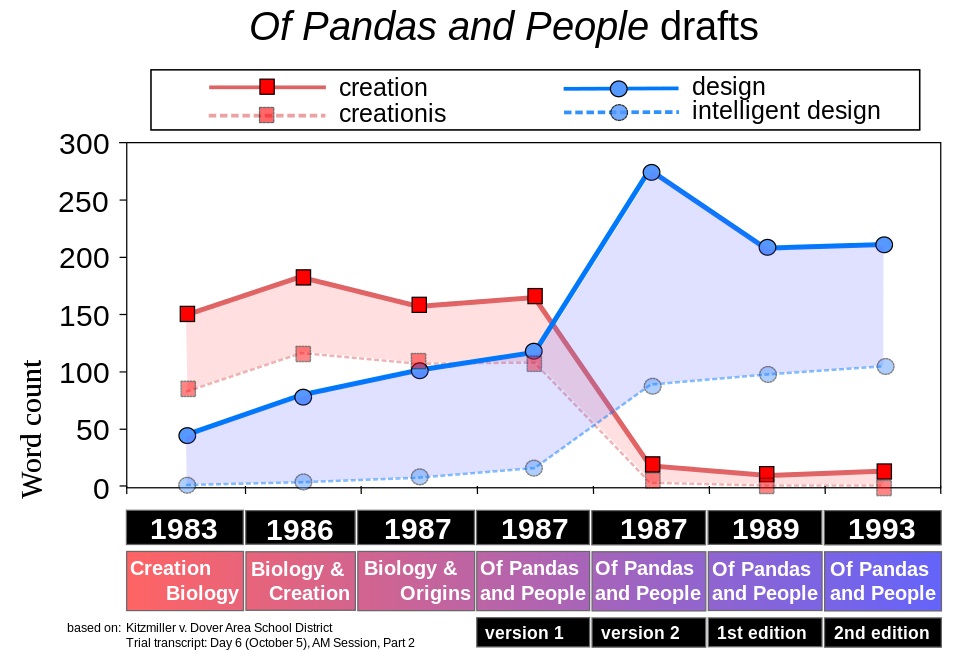Intelligent design is a theory that suggests certain features of the universe and living organisms are best explained by an intelligent cause rather than an undirected process like natural selection. Proponents of intelligent design argue that certain aspects of nature exhibit patterns and complexities that are unlikely to have arisen through random chance alone, pointing to the presence of an intelligent designer.
The concept gained prominence as a critique of Darwinian evolution. Advocates often cite examples such as the complexity of biological structures like the human eye or the intricacies of cellular machinery as evidence of design. They argue that these systems are so complex and finely-tuned that they must have been designed by an intelligent agent rather than solely through natural processes.
However, intelligent design has faced criticism, particularly within the scientific community, for several reasons. One main critique is that it’s not a scientifically testable hypothesis because it doesn’t offer specific, empirically verifiable predictions. Unlike scientific theories, which provide testable explanations based on observable evidence, intelligent design relies more on philosophical and theological arguments.
Moreover, many scientists argue that the evidence used to support intelligent design can often be explained through natural processes and evolutionary mechanisms. They contend that the complexity seen in biological systems can be understood as the result of gradual changes over time through natural selection, without requiring the involvement of an intelligent designer.
Additionally, the concept of intelligent design has been legally controversial, especially in education. Efforts to introduce it into school science curricula as an alternative to evolutionary theory have faced legal challenges because courts have ruled that it constitutes a form of religious advocacy rather than a strictly scientific idea, violating the separation of church and state in public education.
While intelligent design remains a topic of debate and interest among certain groups, its scientific standing is questioned due to a lack of empirical evidence and its perceived departure from the principles of testability and naturalistic explanations that define scientific inquiry.

Mentioned on “Of Pandas and People” book (Wikimedia)
Let’s take a look at these 12 interesting facts about intelligent design to know more about it.
- Complexity Argument: Intelligent design proponents often cite the irreducible complexity of certain biological structures (like the bacterial flagellum or the human eye) as evidence for an intelligent designer, claiming these systems could not have evolved step by step.
- Information Theory: Supporters of intelligent design emphasize the concept of specified complexity, suggesting that certain patterns in nature contain specific information that points to a purposeful arrangement, thus implying design.
- Controversial History: The concept of intelligent design has been a topic of legal and social controversy, particularly in the United States, with debates about its inclusion in science education and its perceived religious underpinnings.
- Not Universally Accepted: Intelligent design is not widely accepted within the scientific community due to its lack of empirical evidence and testable hypotheses, which are foundational in scientific theories.
- Fine-Tuning Argument: Proponents of intelligent design often refer to the fine-tuning of universal constants, arguing that the precise values of fundamental physical constants are so specific that they suggest a purposeful arrangement by an intelligent agent.
- Critique of Darwinian Evolution: One of the central arguments of intelligent design is its critique of Darwinian evolution, positing that natural selection and random mutations alone cannot fully explain the complexity observed in living organisms.
- Design Inference: Intelligent design proponents use a method called design inference, which involves identifying patterns or features that, according to them, are best explained by an intelligent cause rather than natural processes.
- Non-Religious Advocates: While often associated with religious beliefs, some proponents of intelligent design aim to distance the concept from religious connotations, presenting it as a scientific idea divorced from specific theological considerations.
- Debate within Philosophy of Science: Intelligent design has sparked debates within the philosophy of science about the nature of scientific inquiry, the demarcation between science and non-science, and the role of agency in explaining natural phenomena.
- Criticism of Reductionism: Intelligent design critiques reductionism, arguing that reducing complex systems to their individual parts cannot fully explain their origin or function, emphasizing the role of an intelligent designer.
- Criticism of Naturalistic Assumptions: Critics of intelligent design argue that invoking an intelligent designer sidesteps the naturalistic explanations foundational to scientific inquiry, suggesting it doesn’t align with the methodology of science.
- Evolutionary Creationism: Some individuals reconcile religious beliefs with evolutionary theory by proposing theistic evolution or evolutionary creationism, asserting that an intelligent designer guided the evolutionary process rather than directly intervening in it.
Intelligent design, while sparking robust debates and challenging established scientific theories, continues to exist on the fringes of scientific acceptance. Its emphasis on complexity, information theory, and the critique of naturalistic explanations distinguishes it as a viewpoint seeking to explore the mysteries of existence beyond traditional evolutionary paradigms. However, the lack of empirical evidence, testable hypotheses, and the controversy surrounding its inclusion in scientific discourse has relegated it to a realm where philosophical, religious, and scientific inquiries intersect, leaving it a subject of interest for some but not a widely embraced scientific theory.





